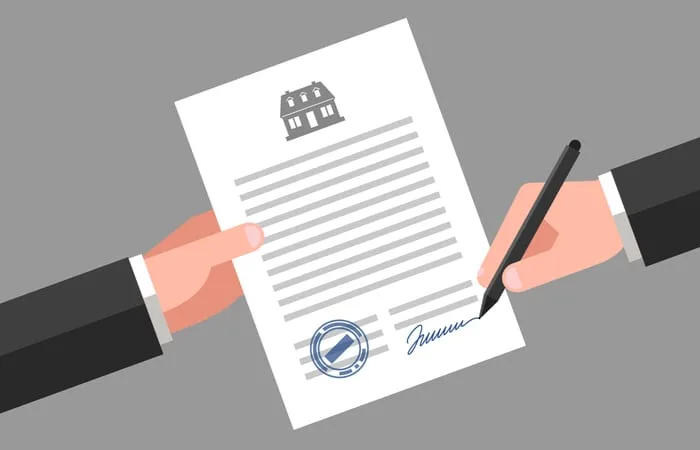During most home searches, you may ask, “how long does it take to buy a house?”
After all, there are many moving parts to this equation. Don’t worry; we have the answer to your question and more in this article.
How Long Does It Take to Buy a Home in 2024?
If you’re in the market for a new home, you’re probably wondering, “how long does it take to buy a house?” Don’t worry; we have the answer to your question and much more. But to start:
How Long Does It Take to Buy a House?
This depends on many factors; the process typically takes between 30 and 60 days from the time you begin your search.
The home buying process can be complicated, and timing your sale is critical to avoid paying carrying costs for two homes. For this reason, it’s important to understand average timelines for each step of the process.
Learn how long it takes to buy a home by reading our step-by-step guide below. Although exact times may vary, we’ve listed average ranges based on our experience.
1. Do Your Homework
Time: 1-7 days

Vladwel/Shutterstock
Before you start house hunting, you need to know what you’re looking for. Home size, number of bedrooms and bathrooms, and key features are all important considerations.
Make a list with must-have features along with those on your wish list. Without a list, you’ll waste time and energy. After making a list that describes your ideal home, you should chat with a banker.
During this process, you’ll examine your income and expenses to determine how much you can afford. Your loan officer will also discuss current mortgage rates and how mortgage payments are calculated.
You should also know how much of a down payment you can make. Lenders won’t usually finance 100% of your home purchase, so you’ll need to fund the remaining amount out of pocket.
Large down payments result in bigger cost savings, so you should plan ahead by setting money aside in anticipation of this.
2. Hire a Real Estate Agent
Time: 1-7 days

Visual Generation/Shutterstock
According to Realtor.com, 91% of real estate sales involved agent representation. The home buying process is complicated, and it’s important to understand the steps.
Real estate agents make your life easier by answering questions and offering guidance throughout the process. They can even save you time by showing you a pocket listing.
3. Get Pre-Approved for a Mortgage
Time: 7-14 days

09910190/Shutterstock
If you’re a regular on our site, you’ve heard us talk about pre-approvals. During this process, a mortgage lender will review your credit score, income, and debt-to-income ratio to determine how much house you can afford.
Then, he’ll issue a pre-approval letter. These not only help set your home budget but also give you a leg up on your competition when making an offer on a home.
While this does not mean you’re guaranteed a loan, it shows sellers you’re a serious buyer. It’s frustrating for sellers for a sale to fall through because the buyer can’t get financing.
And the pre-qualification process provides reassurance that financing isn’t an issue. Cut down on time by gathering tax returns for the last 2 years along with all proof of income.
Make sure you’re current on your loan payments and avoid large purchases until you close on your home. Check your credit history with a free credit monitoring tool like Credit Sesame.
4. Find a Home
Time: 1-70 days

Olessya.g/Shutterstock
The average home buyer sees 10 homes over 10 weeks, according to a Realtor study. A home is a big purchase, and many first-time home buyers look at every available option.
However, in a tight housing market, this number decreases as buyers aren’t as willing to let their dream home escape. Additionally, the rise of virtual tours has allowed buyers to tour the home at their convenience.
This makes it easier to weed out the “bad apples” and ultimately cuts down on showings. Even better is that you can save on commissions by negotiating with the seller.
5. Make an Offer
Time: 1-7 days

Mascha Tace/Shutterstock
After finding a home, you’ll make an offer to buy. In a tight market, you’ll need to be creative with this process, as you’ll be competing against other buyers. Here are a few tips to make your offer as attractive as possible:
- Submit a pre-approval letter along with your offer. This reassures the seller that you’re serious and financing won’t be an issue
- If possible, make a cash offer. This reduces the closing timeline from 45 days to under a week. If necessary, you can always refinance the house after closing
- Tug at the seller’s heartstrings by writing a heartfelt letter. Sellers often have a hard time parting with their homes and want reassurance that you’ll love it as much as they did. You’ll get bonus points for mentioning specifics
- in your letter, like how you picture your kids playing in certain parts of the home
- Offer a large earnest deposit. Just like pre-approval letters, these convey that you’re serious about your offer
- Respond quickly if the seller gives you a counter-offer
- Include an escalator clause in your offer. This means that your offer will automatically increase if you’re outbid
6. Finalize Your Mortgage
Time: 1-2 weeks

Elena Abrazhevich/Shutterstock
Once your offer is accepted, you’ll need to finalize your loan application. If you’ve been pre-approved, your lender most likely has the necessary documents.
However, you’ll need to fill out a formal application and answer any questions about the state of your personal finances. It’s crucial that you don’t make any big purchases between now and closing.
While you’ll be approved for the mortgage, the lender does a final check right before closing. This is to ensure your financial situation has not changed since they initially approved the loan.
We highly suggest avoiding anything that could potentially change your credit score. This includes applying for new credit cards, buying a car, or leaving your job.
7. Order a Home Inspection
Time: 7 days

Ulmi/Shutterstock
While you wait for the loan documents to be prepared, you should order a home inspection. During this process, a professional home inspector will examine the home with a fine-tooth comb in search of hidden defects or problems.
The inspector will compile a list of problem areas that you will present to the seller. Depending on the issue and the nature of the market, some buyers won’t ask for concessions.
However, if there are large items like cracked foundations, buyers may even completely unwind the sale. Additionally, FHA loans (and other government-backed mortgages) require the home to meet certain safety standards.
If the inspector finds any issues, like peeling paint or corroded wires, you’ll need to adjust your timeline accordingly. We also suggest having a pest control company conduct a termite inspection.
Termites burrow in wood and can cause immeasurable damage if left untreated. Include a “contingent on home inspection” clause in your offer letter to give yourself an advantage in case you discover problems with the home.
8. Have Your Home Appraised
Time: 5-10 Days

Teguh Jati Prasetyo/Shutterstock
If you’re using a home loan to fund your purchase, the financial institution will order a home appraisal. These are inspections done to ensure they aren’t lending you more than the home is worth.
If you happen to default on your payments, they’ll need to sell it, and they don’t want to take a loss. Unlike a home inspection, the results of this inspection are sent directly to your lender.
9. Insure Your Home
Time: 7-14 days

Telnov Oleksii/Shutterstock
Home buyers need two types of insurance: title insurance and homeowners insurance. Title insurance protects you against any liens or claims to the property.
A professional will verify the title is free of any encumbrances and will cover the cost of removing them if they’ve made a mistake.
Homeowners insurance protects the property against unexpected damage. This is required by mortgage lenders because they have an equitable interest in the property.
If the home happens to burn down or is destroyed by a storm, insurance pays for the damage. Each of these policies takes between one and two weeks to create.
Homeowners insurance takes longer because an agent must walk the property to verify that it matches your claims.
10. Fund the Purchase
Time: 1-2 days

Alex Oakenman/Shutterstock
On closing day, you’ll need to fund your portion of the closing costs and down payment. This can be done via certified funds (bank checks) or by wire.
Talk to your agent to find out how much you’ll need to bring to closing and arrange for funds to be transferred ahead of time.
11. Do a Final Walk-Through
Time: 1-2 hours, one day before closing
Before closing, you and the agent will walk through the property to ensure all required repairs are done. This is your chance to sign off on the property and make sure you didn’t miss anything the first time you saw it.
While some buyers agents try to use this as a chance to sneak in last-minute credits, we don’t think that’s ethical. This step is not meant to take advantage of the seller.
Rather, this holds the seller accountable for delivering on any promises made during the negotiation process.
12. Close on Your House
Time: 1 hour

Venimo/Shutterstock
This is the day you’ve finally been waiting for. In the closing process, you will sign your loan documents and all necessary paperwork. If you’re using a loan, be prepared to sign at least 20 documents.
Then, you will settle up on your portion of the closing costs (with the check in Step 10) and get your keys. Congratulations! You’re now a homeowner!
So, How Long Does It Take to Buy a House?
As you can see, answering the question “how long does is take to buy a house” varies. While the average home search takes 10 weeks, the time from offer to close ranges from 45 to 60 days.
However, following our tips above can speed up this time frame. Make sure to take our advice in order to move into your dream home as quickly as possible!

